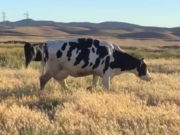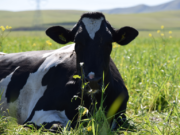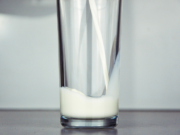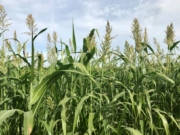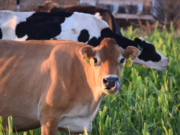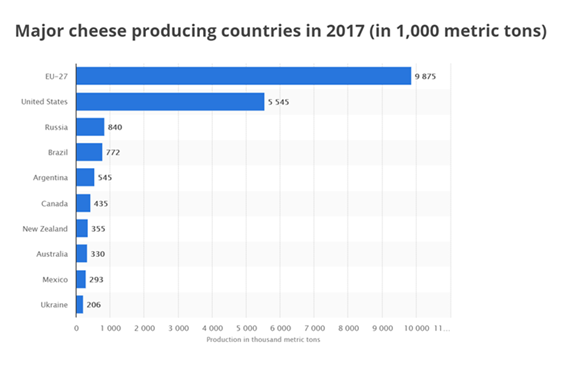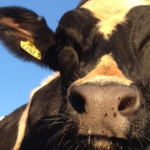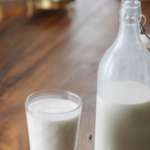
Cheese is wheyyy interesting, let’s dig into the facts:
Cheese has played an Important role in Humanities HISTORY
- Legend states cheese was discovered by accident over 8,000 years ago in modern-day Turkey. It is thought that nomadic peoples discovered it when carrying milk in canteens made of cow stomachs which possess an enzyme – rennet – that causes milk to separate into curds and whey.
- Ancient cheese strainers found in Poland dating back to at least 7,500 years ago contained cheese residues that researchers were able to identify
- The oldest known record of animals being kept in herds and milked is a series of cave paintings in the Libyan Sahara dating 7,000 years ago, shows milking and cheese-making

- Ancient murals depicting the cheese making process have been found in Sumerian temples (5,500 years ago), and Egyptian tombs and temple walls (4,000 years ago) showing the cheesemaking process.
- 4,000 years ago, Abraham in the bible left Ur in Mesopotamia, which was a large center for cheese and butter making according to clay cuneiform tablets. For thousands of years in Ur, cheese was an integral part of religious worship where cheese and butter were daily offerings. Abraham offered cheese to visiting angels (Genesis 18:6-8)
- The world’s oldest cheese was found in China. A mummified body found in China was buried with cheese dating back to 1615 B.C. (Source)
- The earliest references of Cheese in Greece date back to the 8th century BC in Homer’s Odyssey. The Cyclops Polyphemus runs a veritable dairy farm and is watched by Odysseus as he makes cheese.
- Ancient Olympians were fueling themselves on a dairy-based diet of cheese. The majority of the Olympic athletes’ protein came from cheese (Source)
- A 20-year cheese diet – according to Pliny the Elder- Zarathustra acquired eloquence after living entirely on Cheese for 20 years
- The Roman empire was built on Cheese. Romans were cheese connoisseurs and engaged in the cheese trade around the empire with historian Pliny writing of cheese from Nîmes, France as being particularly popular in Rome. Virgil (1st century AD) noted roman soldiers were powered by 1oz. cheese/day. Roman farms typically had cheesemaking rooms dedicated to cheese production.
- The Tibetans and Mongolians also have a long history of producing cheeses and may have had a role in the development of Chinese cheesemaking. A cheese called “rushan” has been produced in Yunnan, China since the time of the Ming Dynasty (1378 AD).
- In Japan, Emperor Daigo (897 AD) encouraged the production of cheese and other dairy products during his reign. “Daigo” was the name given to premium dairy product in ancient Japan and was meant as the best of 5 tastes in Buddhism. Japanese Daigo is thought to originate in China.
- The Vikings fueled themselves for their expeditions by eating their own variety of cheese and considered it an aphrodisiac. (Source)
- English and American sailors in the 1800s were given a ration of 5.4 lbs. of cheese/month = 64 lbs. of cheese/year/person (Source)
Facts About Cheese
- Its been noted that there are over 2,000 varieties of cheese in the World
- It takes 10 lbs. of milk to make 1 lb. of cheese
- Lactose-intolerant people can eat cheese. The bacteria that cause the fermentation process use the lactose (milk-sugar) as food.
- Cheese is primarily made of 3 simple ingredients: milk, probiotic bacteria, and salt
- Mozzarella cheese is the biggest-selling cheese variety in the U.S., followed by Cheddar
- Top Countries that Consume the Most Cheese are Denmark 28.1 (61.9lbs.), Iceland 27.7 (61.1lbs.), Finland 27.3 (60.2lbs.), France 27.2 (60.0lbs.). The United States ranks further down the list at only 16.8 kilograms per capita (37.0lbs.). (Source)
- Top cheese producing countries – EU, United States, Russia (Source)
Facts about Cheese and Health
- A 2017 meta-analysis combined data from 29 studies and 938,000 people and concluded there is no link between dairy fat and heart disease (Source)
- In 2017, researchers from China and the Netherlands combined and analyzed data from 15 observational studies including more than 200,000 people found that people who consumed high levels of cheese had a 14% lower risk of developing coronary heart disease and were 10% less likely to have a stroke than those who rarely or never ate cheese (Source)
- The French Paradox attributes wine to be the secret to the French people’s low incidence of heart disease but cheese may be the more likely source of the French’s good health
- Cheese is superfood being a good source of protein, fat, b12, and bone-building calcium. The fat in cheese is made up of over 400 different fatty-acids which are being shown to possess anti-viral, anti-pathogenic, anti-carcinogenic, anti-inflammatory, and anti-fungal properties. (Source) Your body uses fat build cell membrane and even to maintain a healthy body weight.
- 1 oz. of cheese contains 200mg of calcium or 20% of the daily amount of calcium you need
- Cheese is a great source of probiotic bacteria for a healthy gut

